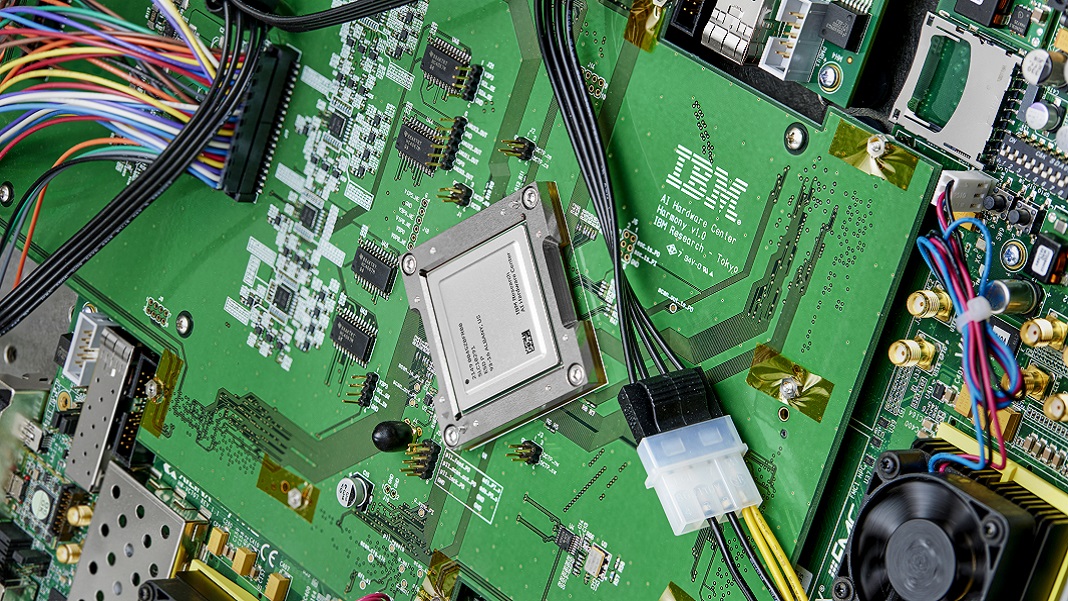IBM researchers have developed a mixed-signal AI chip inspired by the human brain, which features analog in-memory cores and achieves high accuracy rates in image recognition tasks while consuming less power.
Scientists have used AI to design proteins with two different states, essentially creating biological transistors that can change their shape depending on inputs, opening up new possibilities for biotechnology and medical solutions.
Intel and International Business Machines (IBM) are two AI stocks that haven't won over investors yet, but they have the potential for significant growth due to their focus on AI technologies and the opportunities presented by the surge in demand for AI accelerators.
IBM has developed an analogue chip that can run AI speech recognition models 14 times more efficiently than traditional chips, potentially providing a solution to the rising energy demands and carbon footprint of AI.
The use of artificial intelligence (AI) is seen as a positive development in terms of addressing environmental challenges, but there are concerns about AI's own carbon footprint due to energy-intensive processes such as data training and computer hardware production.
Biocomputing, a field that combines artificial intelligence with neuroscience, aims to create machines that use real biological neurons and can reason and create ideas like humans, potentially revolutionizing the capabilities of AI and reducing energy consumption by a significant amount.
Advanced Micro Devices (AMD) aims to expand its presence in the artificial intelligence (AI) market through the development of AI accelerators and software, potentially giving it an advantage over rival chipmaker Nvidia.
Samsung plans to equip all its new home appliances with neural processing units (NPUs) by 2024, adding artificial intelligence (AI) capabilities such as voice recognition and machine vision to its products.
Intel plans to make every PC capable of running AI applications in the near future, as the company targets the growing AI market.
Silicon Valley AI computing startup SambaNova Systems has developed a new semiconductor chip, SN40L, that allows customers to use larger and higher-quality AI models at a lower cost. The chip is specifically designed for enterprise applications and can power a 5 trillion parameter model while maintaining accuracy.
Intel CEO Pat Gelsinger emphasized the concept of running large language models and machine learning workloads locally and securely on users' own PCs during his keynote speech at Intel's Innovation conference, highlighting the potential of the "AI PC generation" and the importance of killer apps for its success. Intel also showcased AI-enhanced apps running on its processors and announced the integration of neural-processing engine (NPU) functionality in its upcoming microprocessors. Additionally, Intel revealed Project Strata, which aims to facilitate the deployment of AI workloads at the edge, including support for Arm processors. Despite the focus on inference, Intel still plans to compete with Nvidia in AI training, with the unveiling of a new AI supercomputer in Europe that leverages Xeon processors and Gaudi2 AI accelerators.
